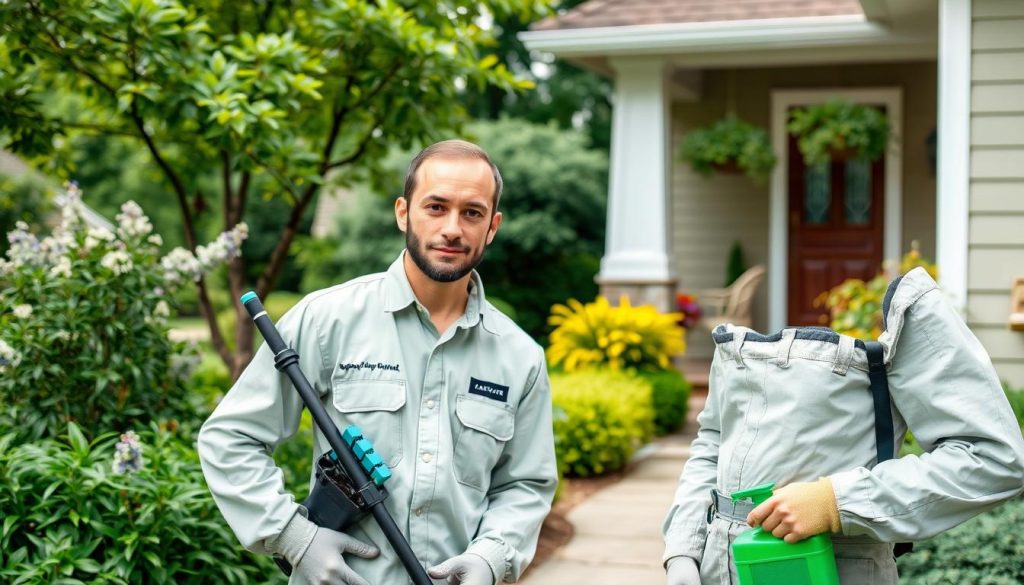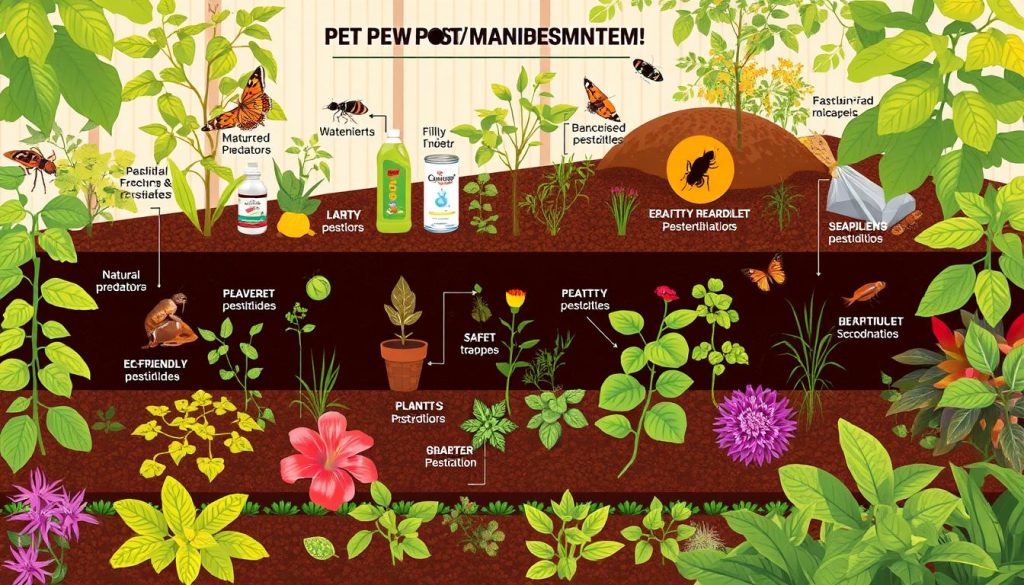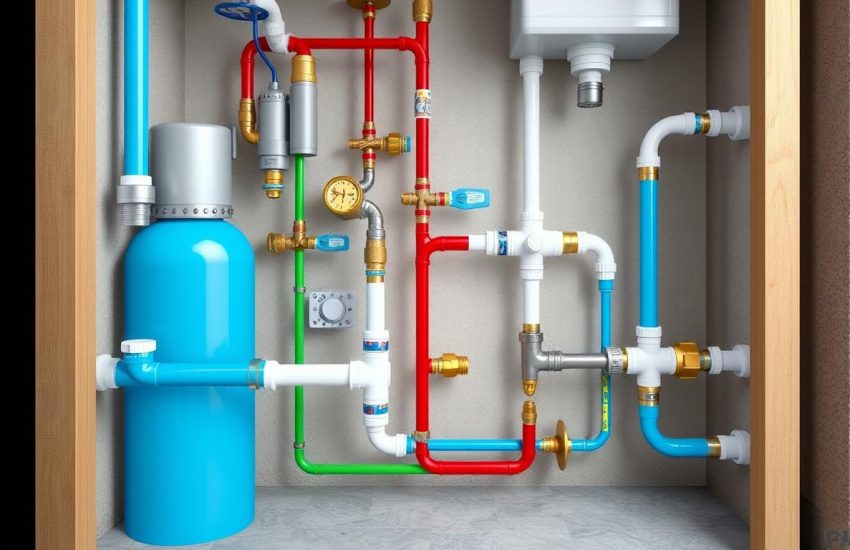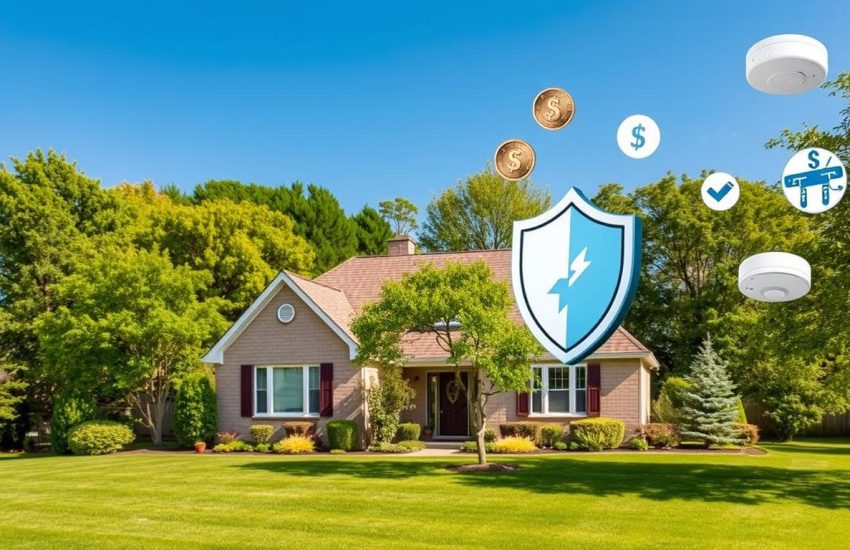Pest Control: A Complete Guide for Homeowners
What’s peace of mind worth to you for a pest-free home? Keeping pests out is key, but the line between a small problem and big trouble is thin. Pest control is crucial for a clean, safe home. It’s not just about dealing with mice or bugs. If you don’t stop pests early, you might need to decide between doing it yourself or hiring experts. This guide covers everything from storing food to being on the lookout all year. It helps people in Groton, Massachusetts, and elsewhere. You’ll learn about pests, when to try handling them yourself, and when to call pros. What’s important is keeping your home a safe place for you, not pests.
Thinking about using a spray or setting a mouse trap? First, let’s look at what pest control really involves. We’ll talk about what landlords should do, how to keep up your home year-round, and why paying for professional pest control can be a good move. This guide is your complete tool for protecting your place.
Key Takeaways
- Understanding the nuances of DIY pest control versus seeking professional help.
- Implementing effective pest prevention strategies for a tidy and pest-free home.
- Recognizing the responsibilities of landlords and tenants in maintaining pest-free environments.
- Evaluating the need for professional pest control services based on the complexity of the infestation.
- Identifying the financial and health importance of maintaining year-round pest control vigilance.
Why Focus on Pest Control?
The pest control importance is very big for our health and homes. Every year, rodents ruin food for 200 million people. This shows how much they affect our economy and health. Pests like cockroaches carry over 30 types of bacteria. This includes E. Coli and Salmonella, which are very harmful to us.
Now, let’s talk about money. Termites alone cause more than $5 billion in property damage every year in the U.S. They hurt the strength of our homes. They also make our homes worth less money. That’s why controlling pests is key to keeping our homes safe.
Pests can also damage our things, like clothes and papers. Moths and silverfish are big culprits. Stopping pests helps us save our important items. Knowing about pests helps homeowners protect their homes and belongings.
The F&W Pest Control uses a smart plan called Integrated Pest Management (IPM). This plan mixes nature and chemicals to control pests. It’s not too costly and safe for people and animals. It also uses fewer chemicals.
Pest control is very important. It stops health problems and big money losses. Homeowners should use good pest control plans. These plans include checking your home regularly. This makes sure pests are kept away.
Homeowners should get these important services. They should ask for expert advice when the seasons change. Doing this helps avoid big pest problems later. For tips, look at HVAC system maintenance tips. It’s like making sure your pest control is done at the right time.
DIY vs Professional Help
Homeowners often have to choose between DIY pest control and professional pest control. Both ways have their own benefits and things to think about.
DIY Pest Control is popular because it’s fast and saves money. People can deal with small problems whenever they want, without spending a lot. They use sprays and natural solutions from stores. This way, they know exactly what they’re using at home.
| Approach | Advantages | Ideal Situations |
|---|---|---|
| DIY Pest Control | Cost savings, Immediate action, Control over methods | Minor or common pests |
| Professional Pest Control | Expertise, Effective long-term results, Safety standards | Severe or complex infestations |
Professional Pest Control, on the other hand, brings expert knowledge and reliable results. Trained exterminators can quickly find and stop pests. They use strong treatments safely and well.
Even though it costs more, the relief and complete removal it brings are worth it. Experts also follow safety rules to protect people and pets.
Also, many professional pest solutions come with promises. This means they’ll make sure the pests are gone for good. This is very important for serious problems or harmful pests.
The choice between DIY and hiring a pro depends on the pest problem’s size, the pest type, costs, and what the homeowner prefers. It’s important to think about saving money now versus the benefits of expert help and long-term success.

How to Save Money
Looking for cost-effective solutions for pests at home can cut down expenses. It’s key to know when to try DIY pest control or call for help. This is crucial for saving money on pest control. Here are tips and information for picking the best option.
Getting a pro can work well but might cost more. Places like F&W Pest Control use special plans that cover everything. But, simple steps like using Diatomaceous Earth can save a lot each year. This is when compared to the usual pest control plans.
| Method | Annual Cost | Types of Pests Managed | Usual Application Time |
|---|---|---|---|
| DIY with Diatomaceous Earth | $25 | General household pests | Varies on infestation |
| DIY with Talstar Pro | Less than $2/month | Over 75 types | 30 minutes for 1,900 sq ft every 3 months |
| Professional IPM Service | $99 to $130 per quarter | Comprehensive pest control | Duration depends on property and infestation level |
Also, making your own pest remedies can work great. For example, mixing 1 oz Talstar Pro with water. This can protect a big area and save money on pest control costs.
By using these clever and cost-effective solutions, homeowners might save up to $2,000 yearly. They also handle pests quickly and well.
Step-by-Step Upgrades
When you start home renovation, adding pest-proofing is key. This keeps your home healthy. We will use Integrated Pest Management (IPM) to fight pests during this time.
First, look for pests before you start fixing your house. Find where pests get in. This can be air ducts or old pipes.
Second, fix these weak spots while renovating. You might change pipes, fill cracks, or add screens on vents. Doing this helps control pests. It also prepares your house against pests.
Third, keep the area clean. This stops pests from coming. Make sure there’s no trash around and keep things off the ground.
- Always throw trash in closed bins.
- Keep wood away to avoid termites and pests.
Fourth, you might need pest control services. They protect your house during and after fixes. They keep pests out.
Fifth, keep up with IPM. This means watching for pests and using safe ways to handle them. This plan changes as needed and uses less harsh chemicals.

- Keep checking your house
- Use cautionary treatments
- Change your plan when you find new weak spots or with the seasons.
Here’s a table to make it easy to understand:
| Step | Action | Focus Area |
|---|---|---|
| 1 | Assess and identify entry points | Pre-Renovation Inspection |
| 2 | Seal and replace vulnerable areas | Active Renovation Phase |
| 3 | Maintain cleanliness and order | Construction Process |
| 4 | Professional pest-proof treatments | Post-Renovation Protection |
| 5 | Implement an IPM plan | Long-Term Maintenance |
By taking these steps, your home renovation will not only look good. It will also be safe from pests. This ensures your house stays healthy and pest-free.
Final Tips for Success
Success in pest control isn’t about reacting only; it’s about being proactive and informed. Check for pests regularly and handle issues quickly to stop big infestations. Knowing the past bug issues on your property shows what problems might come next. Use pest management tools and invite good bugs to your garden. This creates balance and a healthy space.
Using an Integrated Pest Management (IPM) strategy is a smart move. IPM looks at pests’ life cycles and how they interact with their surroundings. It mixes biological, chemical, and physical ways to kill pests. This helps the earth and cuts down on bad pesticides. IPM can make crops grow more, bringing both environmental and money benefits. Using everything from barriers to natural predators is key in a full pest plan. Making a place that supports natural pest control services is very important.
New solutions like the ScoutLabs pest trap show how tech meets pest control. Good pest control needs you to watch closely and change plans as needed. Staying up-to-date with training and best methods is key. Also, know which pesticides work well with many extermination methods. Homeowners can then keep their property healthy. Choosing well-known brands like F&W Pest Control is smart. They offer expert advice and complete pest management services, especially in Massachusetts.



